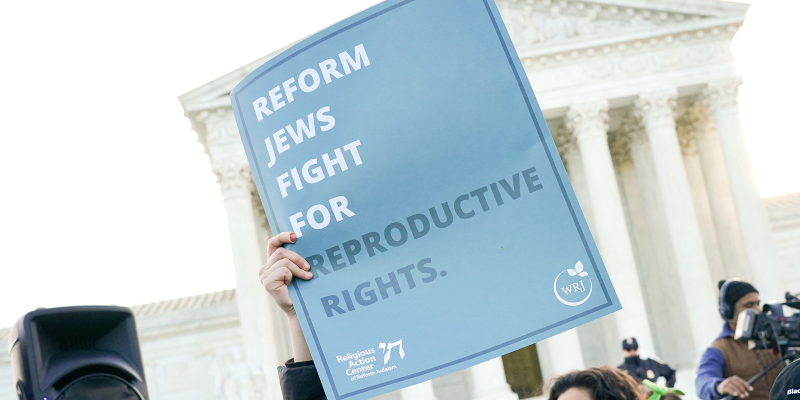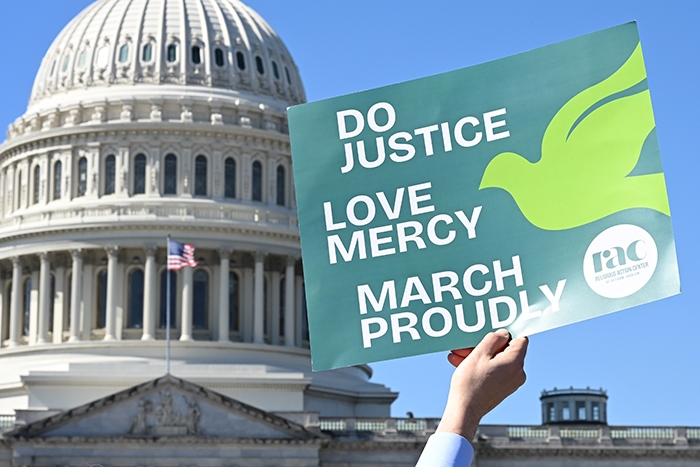
The Reform Movement's positions on reproductive rights are grounded in the core belief that each person should have agency and autonomy over their own bodies. Our advocacy around abortion access is inspired by the Jewish value of kavod ha’briyot, respect for individual dignity. This same sanctity underscores the vital need for medically accurate sexuality education, affordable family planning services, and high-quality maternal and women’s health care.
We strive to work in partnership with both secular and faith-based organizations and build relationships across lines of faith, race, and other differences to create a world in which every person is able to shape their reproductive lives with dignity.
The RAC is partnering with Women of Reform Judaism on the WRJ-RAC Reproductive Health & Rights Campaign to provide an organizing structure for congregations, women's groups, and other Reform Jewish communities to take collective action for reproductive health and rights on a local, state, provincial, and federal level.
For immediate actions to take to preserve and advance access to abortion, check out our Resource Guide.
Check out our resources to guide reflection, support abortion access, and uplift the Reform Movement's commitment to abortion access and reproductive freedom in your congregations and communities for the anniversary of Roe, NCJW’s Repro Shabbat, and beyond.
Why Should Jews Care?
Life is sacred in Judaism. Banning potentially life-saving medical procedures and interfering with a patient’s decision-making and moral agency runs contrary to the Jewish commandment to protect life. This belief, combined with biblical and rabbinic emphasis on human dignity, has led the Reform Movement to view the life of the pregnant individual as paramount, placing a stronger emphasis on protecting existing life than on potential life (Exodus 21:22-23).
Furthermore, the rabbis tell us that a physician’s job is to heal, and if they withhold medical care, it is as if they have shed blood. “The Torah has granted the physician permission to heal, and it is a religious duty which comes under the rule of saving an endangered life. If he withholds treatment, he is regarded as one who sheds blood” (Shulchan Arukh, Yoreh De’ah 336:1). Regressive state laws that prevent physicians and other providers from providing health care is in direct opposition to this sacred duty.
Take Action
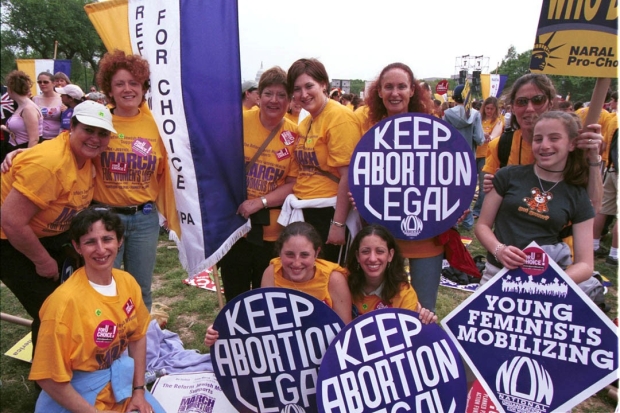
Contact your Governor and State Legislators to Demand They Protect and Expand Abortion Rights
On June 24, 2022, the Supreme Court overturned Roe v. Wade and Planned Parenthood v. Casey, leaving abortion rights to the states. Your state legislatures have the power to protect abortion access through legislation, ballot initiatives, and more.
Urge your Governor and State legislators to protect and expand abortion rights.
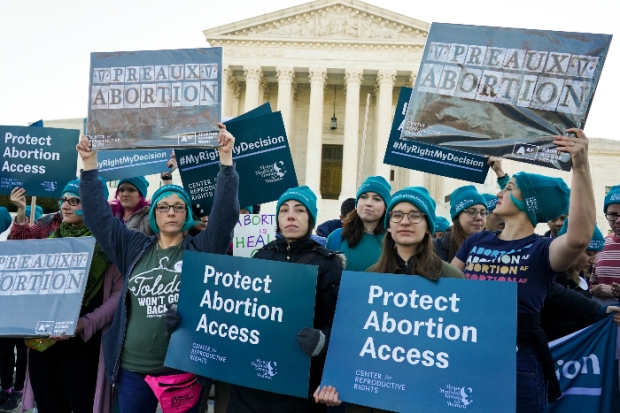
Protect Access to Abortion
The Women’s Health Protection Act would create a federal safeguard against countless state regulations, bans, and restrictions that prevent people from accessing the abortion care they need.
Urge your members of Congress to pass the Women’s Health Protection Act (WHPA).
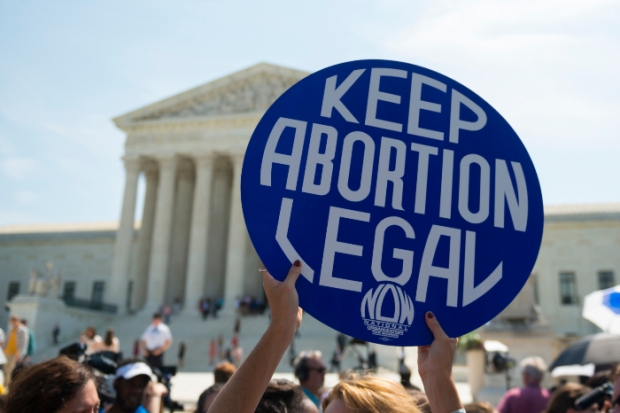
Repeal the Hyde Amendment
The Hyde Amendment prohibits federal health insurance from covering abortion with very narrow exceptions. This disproportionately impacts low-income individuals and limits their access to abortion services.
Urge Congress to support the EACH Act, which would restore moral agency to all pregnant individuals, regardless of income.
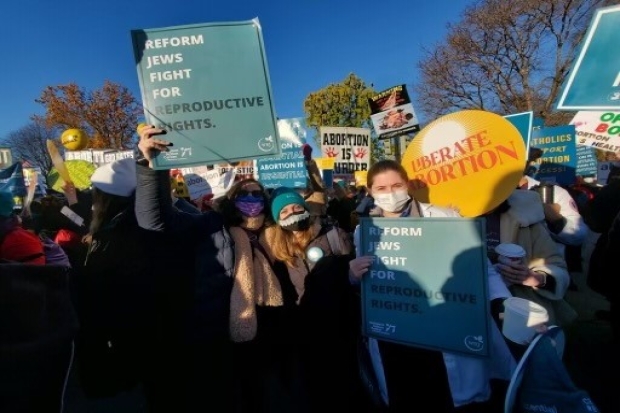
Urge Congress to Pass Comprehensive Legislation to Protect Reproductive Rights
To increase access to reproductive healthcare services, Congress must repeal the Hyde and Helms Amendments, increase investments in the Title X family planning program, codify access to contraceptives, prohibit interference with the provision of, access to, or assistance for abortion care across state lines, and more.
What's New


The Importance of Black Maternal Health
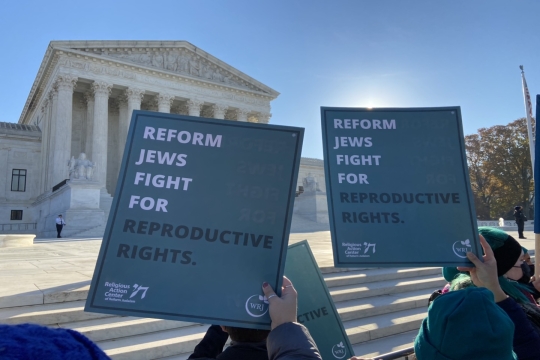
Why the Mifepristone Win Requires us to Do More to Protect Florida’s Reproductive Rights
Related Press Releases

Reform Jewish Leaders Condemn Supreme Court Decision Blocking Medicaid Recipients from Accessing Planned Parenthood
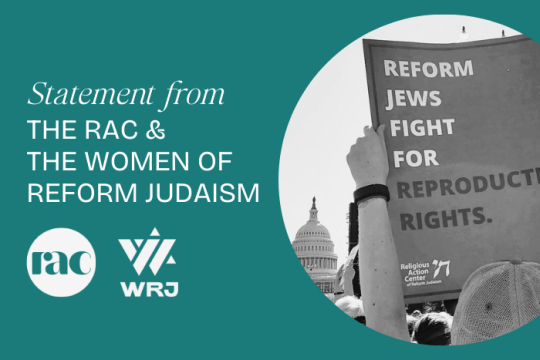
Reform Jewish Leaders Celebrate Passage of State Ballot Measures Protecting Abortion Access

The Religious Action Center of Reform Judaism’s Florida Affiliate Applauds Florida Supreme Court’s Ruling on Amendment 4
Related Issues
Abortion Access
Although 7 in 10 Americans support the right to legal abortion, access is restricted by geography, waiting periods, biased counseling, parental consent laws for minors, insurance coverage restrictions, and targeted regulation of abortion providers (TRAP) laws.
Family Planning & Contraceptives
Access to affordable family planning services is a critical component of our reproductive health and rights advocacy. Access to these services equip individuals with the tools to shape their lives and futures.
Comprehensive Sexuality Education
Sex education is intrinsically linked to reproductive rights. Without it, individuals cannot make informed decisions about their bodies or futures. Sex education provides students with the information to avoid unwanted pregnancies, sexually transmitted infections (STIs) and other health issues.
Reproductive Justice
The legal right to abortion and contraceptive care does not mean much if these rights are inaccessible. The Reproductive Justice Movement is a framework coined by 12 visionary Black women in 1994 that centers the concerns of marginalized communities in conversations relating to reproduction, sexuality, and families.
Reform Judaism's Resolutions on Reproductive Rights
Learn more about the position of the Reform Movement on these key issues, and read the formal resolutions by URJ and CCAR.

Engage Your Congregation

Printable Resources
Utilize the WRJ-RAC Reproductive Health & Rights Printable Resource to find a list of Jewish texts and suggestions on programs to kickstart your advocacy efforts.

Every Voice, Every Vote
The Reform Jewish Movement’s Every Voice, Every Vote Campaign is a nonpartisan effort, grounded in our Jewish values and commitment to racial justice, to strengthen our democracy by encouraging and protecting voter participation.
Contact our Legislative Assistants
For more information on this issue, contact Jessica Cadmus.
Sign Up for Updates
Learn more about the RAC's key issues and get involved by signing up for the legislative updates newsletter.
